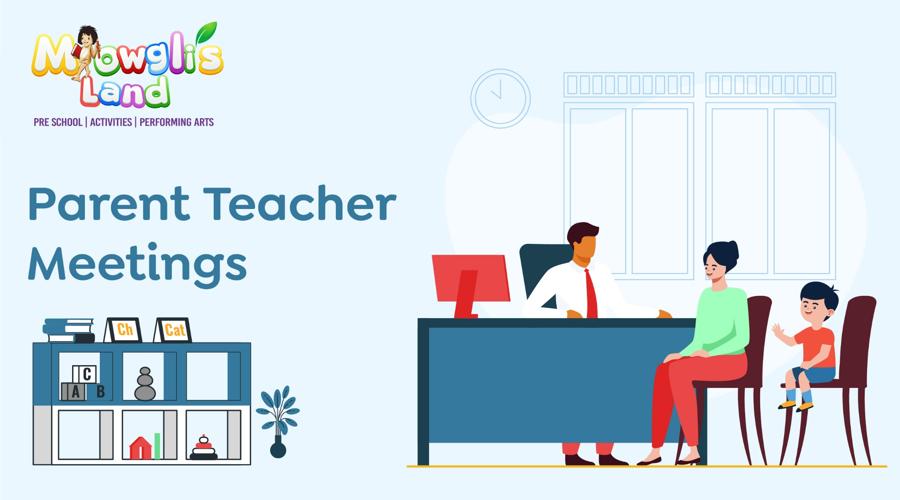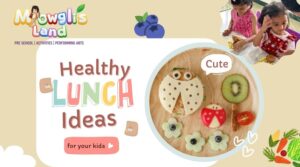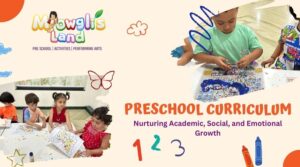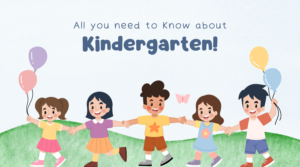In today’s fast-paced world, when parents and teachers work together, students benefit from a supportive learning environment. It nurtures their growth and achievement. However, establishing open lines of communication can sometimes be a challenge. That’s why we’ve compiled 5 tips that help parents and teachers navigate healthy communication in their child’s educational journey.
In this blog, we’ll explore the essential tips that foster effective communication during parent-teacher meetups at Mowgli’s Land.
Why is Parent-Teacher Communication Important?
Effective communication between parents and teachers is the foundation of a student’s academic success. Below are some of the major points that reflect the importance of parent-teacher interaction:
- When parents and teachers communicate together as partners, they create a supportive and nurturing learning environment for students.
- Maintain open communication to ensure both parents and teachers stay informed about a student’s progress and areas of strength.
- Regular communication also fosters trust and mutual respect, which are essential for building a strong relationship between teachers and parents.
- Effective parent-teacher communication fosters a bridge between a student’s classroom and their home.
- Through active participation in communication, parents gain a deeper understanding of the curriculum, teaching methods, and classroom dynamics.
Challenges in Parent-Teacher Communication
Despite the numerous benefits of parent-teacher communication, here are some of the challenges that are encountered during a parent-teacher interaction:
- One common challenge is parents’ and teachers’ limited time and availability. This includes busy work schedules and extracurricular activities.
- Parents from diverse backgrounds may have different communication styles, preferences, and expectations This can make it challenging for teachers to engage with them effectively.
- Sometimes, teachers may only have the cultural awareness or language skills needed to facilitate open communication with all families. This could lead to another challenge in the communication process.
- Past negative experiences, like heated arguments or a lack of responsiveness, also create a sense of distrust and hesitancy.
- One additional challenge in parent-teacher communication stems from differing priorities. Teachers naturally prioritize academic achievement, while parents often focus on their child’s emotional well-being.
Tips for Developing Open Lines of Communication
Building open communication in a parent-teacher meetup is key! Here are some tips to get you started:
- Active Listening for Improved Communication: Pay close attention to what the other person is saying. The process of communication must be both verbal and non-verbal. Show them you’re engaged and interested in understanding their perspective. Moreover, both the parent and the teacher must practice an open dialogue.
- Parental Involvement in Student Education: Active participation from parents in parent-teacher meetings is crucial. These meetings are one way parents can be involved in their child’s educational journey. It also includes teachers inviting parents to different school events and programs so that parents feel a sense of belonging.
- Enhancing Parent-Teacher Communication Digitally: Technology can help make conferences between parents and educators better. Video conferencing and virtual meeting platforms offer convenient options that foster ongoing communication between parents and teachers.
- Clear Expectations and Goals: Parent and teacher must clear the expectations that they set for each other during the time of the student’s admission. By setting these clear objectives, both can align their efforts and work collaboratively.
- Building trust and rapport between parent and teacher: It is crucial to be truthful in a parent-teacher meeting, even if it’s difficult. Teachers can develop a sense of trust in a parent’s mind by punctually adhering to their perspectives and concerns. The program fosters a collaborative partnership between teachers and parents.
Conclusion
The five tips outlined in this blog provide a roadmap for parents and teachers to navigate the communication process successfully. By implementing these strategies, they can overcome common challenges and work together toward helping students reach their full potential.
Ultimately, the success of a student’s educational journey depends on the collective efforts of both parents and teachers. By embracing effective communication and collaboration, they can ensure that students receive the support and guidance they need to excel in their lives.
At Mowgli’s Land Preschool, by prioritizing parent-teacher communication, we can create a more inclusive, supportive, and empowering learning environment for all students!




